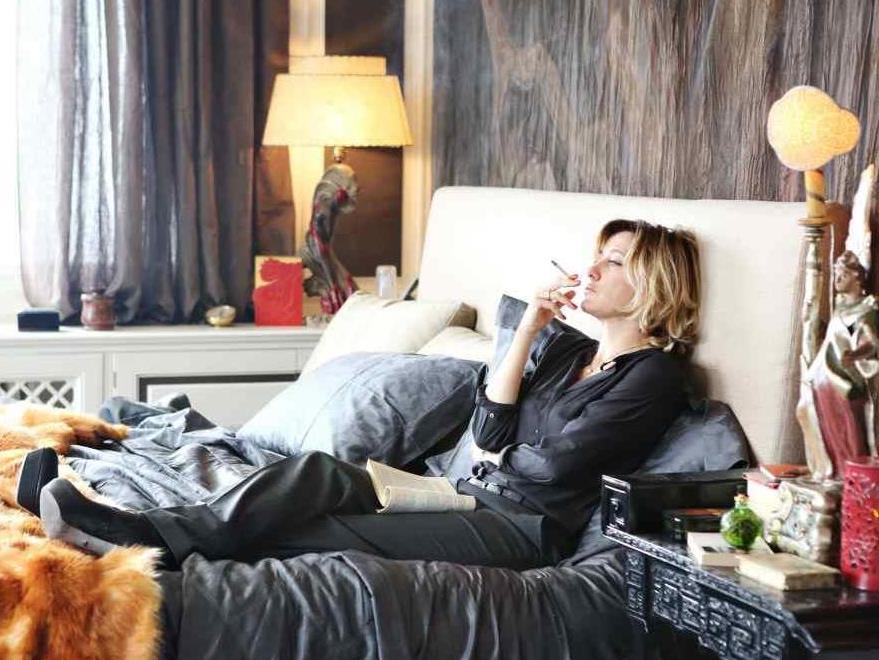Starting a film with a hit-and-run accident has become a commonplace cliché of commencement, endeavouring to elicit immediate interest through the sudden onset of tragedy. It is to Human Capital’s (Il capitale umano) credit that it turns the frequently seen into the modestly intriguing in a swift swoop of characterisation and commentary, as it charts the intertwining exploits of two Italian families.
Six months before a cyclist is knocked off the road in the events that form the feature’s introduction, the well-to-do Bernaschis and the struggling Ossolas share several encounters. The patriarch of the latter, Dino (Fabrizio Bentivoglio, Easy!), endeavours to cultivate a friendship with his former counterpart, Giovanni (Fabrizio Gifuni, The Legend of Kaspar Hauser), over their dating children – Serena (newcomer Matilde Gioli) and Massimiliano (fellow first-timer Guglielmo Pinelli) – and a potential business investment. Dino’s eagerness springs from a desire for upward mobility, fuelled from simple social envy, and the stress of a partner, Roberta (Valeria Golino, Jacky in Women’s Kingdom), due to deliver twins. Giovanni’s aloofness to his increasingly imposing new pal appears in line with his stately home and trophy wife, Carla (Valeria Bruni Tedeschi, A Castle in Italy).
Broken into chapters, Human Capital tells its tale from Dino, Carla, and Serena’s differing perspectives, circling around the opening scene. Accordingly, the feature adheres to two more gimmicks of cinematic storytelling: relating its narrative in a non-linear fashion, and revisiting sequences from varying viewpoints. Thankfully, valiantly charting territory that has caused many other efforts to crumble, the details of writer/director Paolo Virzì (Every Blessed Day) and co-scribes Francesco Bruni (Studio illegale) and Francesco Piccolo’s (We Have a Pope) effort is up to the task. Adapting the American novel by Stephen Amidon, albeit transporting the drama from Connecticut to the town of Brianza outside of Milan, they maintain attention in the ephemera that surrounds the criss-crossing arcs, rather than in standard plot itself.
Evoking interest isn’t the same as offering astute insights, although Human Capital certainly packages the twists and tension in its content in that manner. The film has plenty to say about the state of Italian society, the chasm between those at the top and the midway point of the social ladder, and the means in which one retains its status and the other covets it; however what it says is far from new. Its cynical insights into general human behaviour are similarly recognisable, striking familiar beats of lust, lying, larceny and illegalities as it does, but hit the mark in broader rather than specific terms. Perception as a driving force – caring about how we’re seen, regardless of the bad deeds needed to evoke the requisite reaction – is the most potent thematic strand.
Virzì directs the drama with a distanced eye, one matched by the increasingly icy climes and the cold palatial interiors that fill the film’s frames. His cinematographers, Jérôme Alméras (Love Punch) and Simon Beaufils (You and the Night), do excellent work in rendering every scene with the texture of foreboding and futility, just as his editor, Cecilia Zanuso (House of Shadows), does in weaving different takes on the same circumstances together. Also admirable is the entire cast, including Bentivoglio’s more comic and sympathetic turn, Bruni Tedeschi showing fragility in a welcome change from helming a bad French comedy, and debutant Gioli channelling tenacity beyond her character’s youthful years. Of course, the overstated gesture of linking everything together and the neatness of the ending once more typify the feature’s penchant for stereotypical techniques, and fittingly so; in probing prices of our lives – the human capital of the title – within well-worn parameters, the film always feels both diverting and calculating – and that’s no accident.
Rating: 3 stars out of 5
Human Capital (Il capitale umano)
Director: Paolo Virzì
Italy / France, 2013, 111 mins
Release date: December 4
Distributor: Hi Gloss Entertainment
Rated: MA
Actors:
Director:
Format:
Country:
Release:





